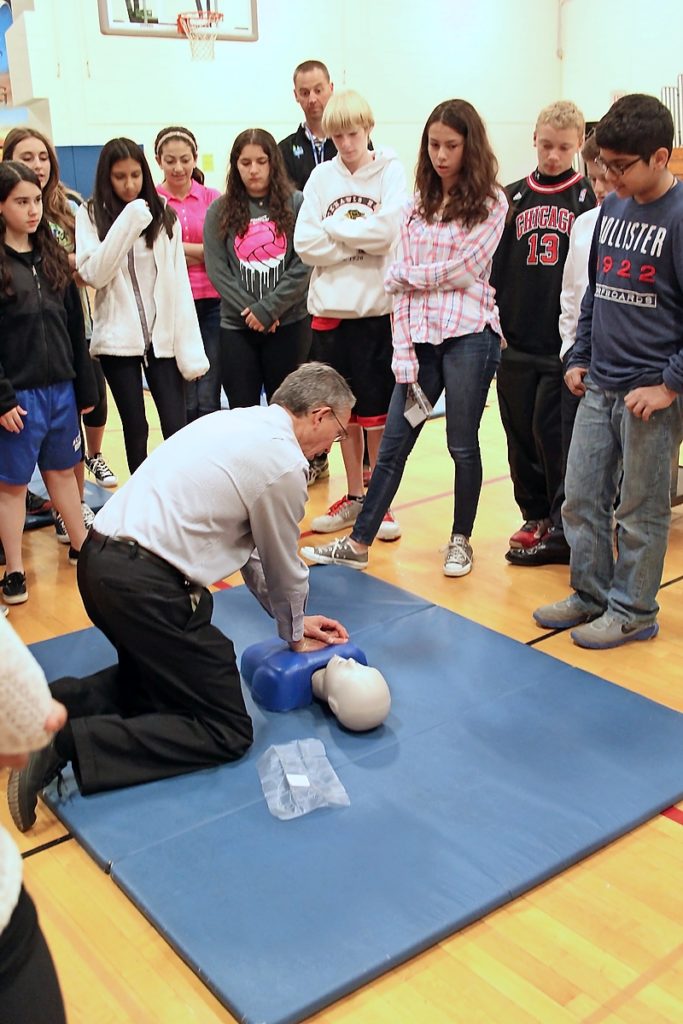Cardiac care
By Julie Duffin
September 2020 View more Humanitarian

Young Hearts for Life has been quietly making a difference in our community for the past 14 years, but most residents don’t hear about the program unless they have a child in high school.
Even then, the opportunity to take advantage of a free heart screening for students may get missed or tossed aside as unnecessary. However, if you’ve ever heard stories of young adults suddenly dying while playing sports or in gym class, you know how important early screening can be.
Founded by Dr. Joseph Marek in 2006, YH4L offers free electrocardiograms to students in an effort to detect conditions that cause Sudden Cardiac Death. Since its inception, YH4L (www.yh4l.org) has grown into the largest screening program in the United States. To date, it has evaluated over 258,000 students and identified 3,100 who were previously unaware they had a heart condition. The program is free thanks to support from Edward-Elmhurst Hospital and a vast array of community volunteers.
Stopping a silent killer
Nearly 60 young adults die every week from sudden cardiac death, according to a study published by the American Heart Association. After a number of local students died unexpectedly from SCD, Marek was determined to do something. “It’s the biggest challenge we face as cardiologists. SCD occurs most often in people who aren’t aware they have a heart condition, so we don’t get the opportunity prevent it,” he explains.
In a series of Wall Street Journal articles, Marek learned doctors in Europe were successfully using EKGs to identify at-risk students. He approached local hospitals to get funding and held his first screening at a junior high school where, with help from volunteer medical personnel, they screened 86 students. Satisfied the progress worked, he began looking for ways to scale up the number of screenings. “These conditions, although they are not rare, are not common. You really have to sift through a lot of kids to find the ones who are at risk,” he explains.
His biggest challenge became finding a workforce. Marek discovered he could successfully train community volunteers to use the EKG equipment in 90 minutes. “After the training session, volunteers are prepared to do an EKG the next day, and quite honestly they do them better than what people get at a doctor’s office or outpatient facility. We proved this in a medical study that was published in a peer-reviewed journal,” he states. “Plus as parents, they know how to put the kids at ease in order to run the tests effectively and efficiently.”
As the number of screenings increased, so did the community’s awareness. “Our mission at YH4L is not to do EKGs—our mission is to reduce the devastation from the sudden death that occurs in these young adults. Screening is one part. We also want to raise awareness about the syndrome and help people be prepared for a cardiac emergency,” he states. Because of that, YH4L runs a Gold Heart Family support group for those who have lost a child to SCD. They’ve also established a junior board for students interested in helping their cause. “We found there were a lot of kids interested in why we were doing screenings and in what YH4L was all about,” program director Kathy Marek, the founder’s wife, explains. The board currently comprises 52 students from 17 different high schools. Dr. Marek is also working on a program to help schools create Emergency Action Plan training for school staff members.
With recent COVID restrictions, the nonprofit is implementing new ways to continue screenings. “Before COVID-19 we were able to do 2,300 EKGs in one day. With social distancing, we’ll be more limited now, but we are committed to doing something,” Kathy Marek assures.
Photo Courtesy Young Hearts for Life


